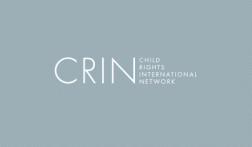What is it?
The Universal Periodic Review (UPR) is the term given to the Human Rights Council’s main way of enforcing human rights. The UPR is where the Council (the 47 elected Member States) examines the human rights situation in every Member State of the UN, every four and half years. It’s like a 'peer review' for State’s adherence to human rights.
A State’s review is based on:
-
information provided by the State, either orally or in writing (written forms cannot be longer than 20 pages).
-
relevant information from other treaty bodies and special procedures (which can includes the Committee on the Rights of the Child and special procedures such as the Special Rapporteur on the sale of children, child prostituion and child pornogrpahy and the Special Rapporteur on trafficking in persons, especially women and children). This is compiled by the Office of the High Commissioner for Human Rights (OHCHR) and is no longer than 10 pages.
-
information provided by civil society (eg NGOs, both international and local, and individuals). These are called ‘alternative reports’ and must also be no longer than five pages. This is a terrific way for civil society to get its messages about the human rights situation in a country on the international stage. Get information and advice on what to put in an alternative report and how to submit one.
During each State’s UPR review, the Council takes three hours to consider each State’s human rights situation based on the evidence before it, and then half an hour to adopt a report in plenary which includes conclusions, recommendations and voluntary commitments or pledges made by States.
NGOs can attend the plenary, but it is unlikely that they will be able to participate in the dialogue as there is a limited number of speaking slots for NGOs, and only those with ECOSOC status can make an oral statement.
Importantly, the UPR reports have two sets of recommendations - one based on the State’s evidence, so something they will agree with, making it easier to ensure it happens; and another that is based on other evidence. The second part is often where the real issues are - and the diplomatic tensions.
Sign up to the Children’s Rights at the UN CRINmail to receive monthly UPR reporting deadlines and other UN news, and find out more on what's happenings at the UN via our advocacy calendar.

